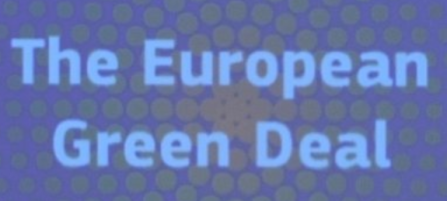The Geopolitical Implications of the European Green Deal
| Date |
Date
|
| Time |
Time
10:00 AM - 11:00 AM Eastern Time
|

The European Green Deal is a new foreign policy tool for the EU with profound geopolitical consequences, both in its immediate neighborhoods and beyond. While the Green Deal is an effort to transform the European economy at its core and reduce greenhouse gas emissions by at least 55% until 2030, it will also define the EU's global policy priorities in the decades ahead. As the EU takes more of a leadership role in climate change discussions, it may be able to leverage its relationship with both close and more distant partners and to encourage just-transition policies and other green politics beyond its immediate sphere of influence.
Join the Wilson Center and TCB co-sponsors for a virtual event to discuss the European Union's Green Deal, its implications for climate diplomacy and strategic foresight, and impact on transatlantic relations. This event is co-sponsored by the Austrian Marshall Plan Foundation and part of the Wilson Center's Transatlantic Dialogue Series.
Introduction:
- Duncan Wood, Wilson Center Vice President for Strategy & New Initiatives, Senior Advisor to the Mexico Institute, and Interim Director of the Global Europe Program;
- Wolfang Petritsch, President of the Austrian Marshall Plan Foundation.
Moderator
- Andreas Raspotnik, Austrian Marshall Plan Fellow and Senior Research Fellow at the Fridtjof Nansen Institute.
Panelists
- Anne Bergenfelt, Senior Advisor at the Office of EU's High Representative for Foreign Affairs and Security Policy;
- Jeremy Shapiro, Research Director of the European Council on Foreign Relations;
- David Livingston, Senior Advisor to U.S. Special Presidential Envoy for Climate John Kerry.
